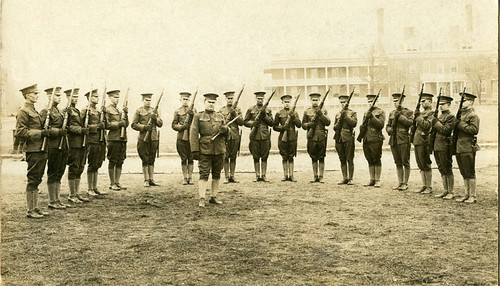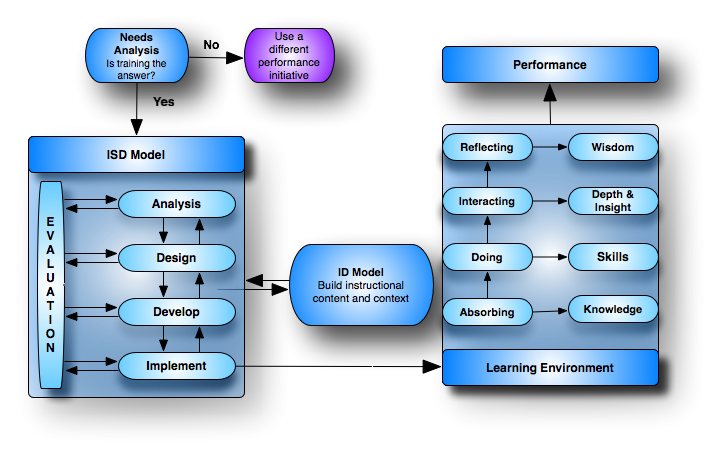Instructional Design — Boot Camp
While the Armed Services traditionally used boot camps, other organizations occasionally use them in order to accelerate learning through immersion type learning. Boot camps normally have smaller classes than conventional ones with typically a dozen learners or less. Applicants are screened to ensure they have a certain level of knowledge of the subject matter so that other learners are not slowed down in the rapid learning environment. Boot camps are held away from the learner's work environment so there will not be any distractions, normally run from one to two weeks, and immerse learners in one subject for 12 to 16 hours a day to prepare them for a certification test.

Photo by Nomigraphics
The advantage of this type of training is companies get an up-and-running performer back within a short period of time. While the disadvantages include that learners will lose their newly acquired skills if they are not used right away due to the rapid pace in which they were acquired, and some learners like the slower pace of traditional learning programs.

Photo by Wendy Kurtz — James Malinchak's College Speaking Success Boot Camp
During the rush to repair all the Y2K bugs in the late 1990s, a lot of software and computer training programs used boot camp learning philosophies in order to bring programmers quickly up to speed. They are not as popular now due to the slow down in the tech sector, but can still be found. Correctional facilities have used them, but these are not normally very successful. The reason the Armed Services and the tech sector found them useful, but not the correctional sectors, have more to do with contextual factors. For example, a programmer entering a tech boot camp prior to 2000 had career opportunities, while a prisoner entering boot camp was doing so because of punishment.
When deciding if boot camps will work, look closely at the learners and the course that you have right now. Are the learners well motivated to complete the course as is? Is the course exciting? Look at yourself and the other trainers — if you were to radically change hours, how would you manage your other life (outside the workplace)? Look at the organization — is it the type of organization that would support such an endeavor (not only the course and learners, but also you, such as provide compensation time?



